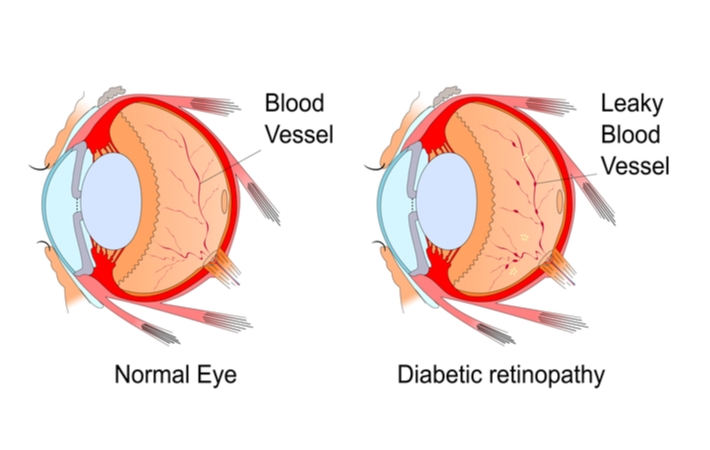
Have you ever experienced blurred vision in one eye and wondered what might be causing it? Blurred vision can be concerning, especially when it happens suddenly. It can be a symptom of an underlying issue, ranging from mild conditions like eye strain to more serious medical concerns. Understanding what causes blurred vision and knowing the available blurred vision treatment options can help you take the right steps to protect your eyesight.
In this article, we’ll explore the reasons for blurred vision, what causes blurred vision in one eye, and possible treatments to improve your vision. If your eyes suddenly blurry, it’s important to identify the cause and seek medical attention if necessary.
Blurred Vision Meaning in Hindi
Before diving into the causes and treatments, let’s understand the meaning of blurred vision in Hindi.
Blurred vision in Hindi is referred to as “धुंधली दृष्टि” (Dhundhli Drishti). It describes a condition where a person finds it difficult to see objects clearly, leading to a hazy or out-of-focus appearance.
What Causes Blurred Vision in One Eye?
There are several reasons for blurred vision, and while some may be temporary, others require immediate medical attention. Here are some common causes:
1. Refractive Errors
Refractive errors like nearsightedness (myopia), farsightedness (hyperopia), and astigmatism can cause blurred vision. If only one eye is affected, you might experience eyes suddenly blurry on that side. A simple vision test can determine if you need prescription glasses or contact lenses.
2. Eye Strain and Fatigue
Extended screen time, reading in dim lighting, or lack of sleep can cause sudden blurry vision in both eyes or just one eye. Giving your eyes some rest and following the 20-20-20 rule (looking away from the screen every 20 minutes for 20 seconds at something 20 feet away) can help reduce eye strain.
3. Dry Eye Syndrome
Dry eyes can lead to blurry eyes, irritation, and discomfort. This occurs when your tear glands fail to produce enough lubrication for your eyes. Using artificial tears or increasing your water intake can help alleviate symptoms.
4. Cataracts
Cataracts cause clouding of the eye’s lens, leading to sudden blurry vision or gradual vision loss. This is more common in older adults but can occur at any age due to injury or medical conditions like diabetes.
5. Eye Infections
Bacterial or viral infections such as conjunctivitis (pink eye) or keratitis (inflammation of the cornea) can cause eyes suddenly blurry. If you experience redness, pain, or discharge along with blurred vision, seek medical attention immediately.
6. Migraine with Aura
Some people experience blurred vision as a symptom of migraines. This is known as an aura, and it usually precedes the headache. If you frequently experience sudden blurry vision followed by a headache, consult a doctor.
7. Retinal Detachment
A detached retina occurs when the retina pulls away from the back of the eye, leading to sudden blurry vision in one eye, flashes of light, or floaters. This is a medical emergency and requires immediate treatment.
8. Glaucoma
Glaucoma is an eye condition that damages the optic nerve due to increased pressure in the eye. It can cause sudden blurry vision in both eyes or one eye and, if left untreated, can lead to permanent vision loss.
9. Stroke or Mini-Stroke (TIA)
A stroke or transient ischemic attack (TIA) can cause sudden blurry vision or loss of vision in one eye. If you experience other symptoms like weakness, confusion, or difficulty speaking, seek emergency medical help immediately.
10. Diabetes and Diabetic Retinopathy
High blood sugar levels can damage blood vessels in the retina, leading to blurry eyes. If you have diabetes and experience eyes suddenly blurry, it’s crucial to get your eyes checked regularly.
Blurred Vision Treatment: How to Restore Clear Vision
The treatment for blurred vision depends on its underlying cause. Here are some general treatment options:
1. Prescription Glasses or Contact Lenses
If a refractive error is causing your blurry eyes, wearing the right prescription glasses or contact lenses can correct your vision.
2. Lubricating Eye Drops
For dry eye syndrome, artificial tears or lubricating eye drops can provide relief and improve blurred vision.
3. Lifestyle Changes
Reducing screen time, improving sleep patterns, and staying hydrated can help prevent eyes suddenly blurry due to strain or fatigue.
4. Medications and Eye Drops
For conditions like glaucoma or infections, doctors may prescribe eye drops, antibiotics, or other medications to control symptoms and prevent complications.
5. Surgery
For cataracts or retinal detachment, surgery may be necessary to restore vision.
6. Managing Underlying Conditions
If diabetes or hypertension is causing sudden blurry vision, managing these conditions with proper medication, diet, and exercise can improve eye health.
When to See a Doctor?
You should seek immediate medical attention if you experience:
- Sudden blurry vision in one or both eyes
- Blurry eyes accompanied by severe headache or dizziness
- Loss of vision or blind spots
- Eyes suddenly blurry along with weakness or difficulty speaking
- Pain, redness, or discharge from the eye
These symptoms may indicate a serious condition that requires urgent care.
Protect Your Eyes with a Health Insurance Plan
Vision problems can sometimes require expensive treatments. Having a reliable health insurance plans ensures you receive the best medical care without financial stress. Niva Bupa offers comprehensive health insurance plans that cover eye treatments, surgeries, and emergency care, helping you maintain your vision and overall well-being.
Taking care of your eyes is essential for a good quality of life. If you experience blurred vision or any related symptoms, don’t ignore them. Consult an eye specialist and consider a health insurance plan to protect yourself from unexpected medical expenses.
Conclusion
Blurred vision can be caused by various factors, from minor eye strain to serious medical conditions like retinal detachment or stroke. Understanding the reasons for blurred vision and knowing when to seek medical help can prevent complications. If you ever find yourself wondering, what causes blurred vision, remember that early diagnosis and treatment can make a significant difference.
Maintaining eye health through proper care, routine check-ups, and a good insurance plan like Niva Bupa the best health insurance company can help you manage sudden blurry vision in both eyes and keep your vision sharp for years to come.





